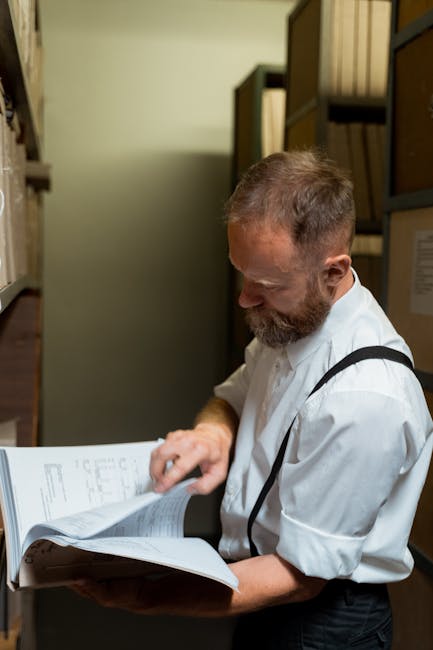Unlock encrypted content
Please enter your SSCE key to initiate on-the-fly decryption.
Decryption key: (Click cancel if you don't have the key)
Copied link to clipboard.
This feature is unavailable for free accounts. Upgrade now and enjoy all Premium benefits.
Go Premium!
This feature is unavailable for free accounts. Upgrade now and enjoy all Premium benefits.
Go Premium!
Please open this page in browser ( Google Chrome or Safari ) to use this feature.
Open In Browser
Secure Collaboration in Biotechnology Using Intelligent File Tagging and Machine Learning Data Storage.
Random related video for this blog.
Copied share link to clipboard.
As the biotechnology industry continues to evolve and grow, the need for secure document collaboration between researchers and scientists becomes more critical. With sensitive information being shared, it is essential to have a system in place that can ensure data privacy and prevent unauthorized access. Fortunately, advances in technology have enabled the development of solutions that can address these challenges. In this article, we will explore how secure collaboration in biotechnology is achievable by using intelligent file tagging and machine learning data storage.
Secure Collaboration in Biotechnology
Collaboration is essential in the biotechnology industry as it enables researchers and scientists to share their findings and work together to achieve common goals. However, with the vast amount of sensitive data being exchanged, there is a need for secure collaboration tools that can ensure the confidentiality and integrity of the information being shared.
One way to achieve secure collaboration is through the use of intelligent file tagging. This solution enables users to tag files with relevant keywords, making it easier to categorize and search for specific documents. For example, a researcher working on a cancer cure project can tag their files with relevant keywords such as "cancer," "treatment," or "clinical trials." This way, other team members can easily search for and access relevant documents without going through multiple folders or asking for permission.
Machine Learning Data Storage
Another way to achieve secure collaboration is through machine learning data storage. This technology utilizes machine learning algorithms to analyze and categorize data, making it easier to access and secure. With machine learning, data can be classified based on its sensitivity level, enabling administrators to set access controls and monitor data use.
For instance, a biotech company can use machine learning data storage to classify their data into different categories such as "confidential," "sensitive," and "public." Each category can have specific access controls that determine who can access and modify the data. This way, researchers and scientists can work collaboratively without compromising data privacy or security.
File Access Auditing
File access auditing is another critical feature that biotech companies can use to ensure secure collaboration. This solution enables administrators to monitor file access and usage, ensuring that only authorized personnel can access sensitive data. With file access auditing, administrators can track who accessed a file, when it was accessed, and what changes were made. This way, any unauthorized access can be detected and prevented before it leads to data breaches.
Virtual Realities
Virtual realities are another technology that can enhance secure collaboration in biotechnology. Virtual reality (VR) allows researchers and scientists to collaborate in a virtual environment, making it easier to visualize and analyze complex data. With VR, researchers can work together in real-time, making decisions faster and more efficiently.
For example, a team of scientists working on a drug discovery project can use VR to visualize and analyze the 3D structure of molecules. This way, they can identify potential drug targets and optimize drug candidates more quickly and efficiently.
Secure Collaboration Case Study
One example of a biotech company that has implemented secure collaboration solutions is a pharmaceutical company that specializes in developing cancer treatments. The company has implemented intelligent file tagging, machine learning data storage, and file access auditing to ensure secure collaboration among its researchers and scientists.
The company's researchers can tag their files with relevant keywords, making it easier for other team members to access and search for relevant documents. The company also uses machine learning data storage to classify data based on its sensitivity level, enabling administrators to set access controls and monitor data use.
Furthermore, the company uses file access auditing to track who accessed a file, when it was accessed, and what changes were made. With these solutions in place, the company can collaborate securely, ensuring data privacy and preventing unauthorized access.
Conclusion
Secure collaboration is crucial in the biotechnology industry as it enables researchers and scientists to work together to achieve common goals. By utilizing intelligent file tagging, machine learning data storage, file access auditing, and virtual realities, biotech companies can collaborate securely, ensuring data privacy and preventing unauthorized access. With solutions such as FileLu's cloud storage, biotech companies can securely transfer large files, backup data, and share files with ease.
Author: Amelia Isabella.
Cloud Storage Specialist and Technology Writer
Email: [email protected]
Related
Virtual Realities: Exploring the Limitations and Advancements in Data Storage
July 3, 2023
Read More
Introducing FileLu: A Comprehensive Cloud Storage Solution for Data Analytics,...
July 3, 2023
Read More
Smart Contracts: Revolutionizing File Management and Sharing in Futuristic Societies
July 3, 2023
Read More
Efficient Backup and Recovery Processes: Ensuring Data Privacy in Biotechnology
July 3, 2023
Read More
<h1>Enhancing Data Security and Storage Efficiency: Exploring the Latest Technological...
July 3, 2023
Read More
Advanced File Management and Secure Data Sharing with Neurotechnology Nanotechnology...
July 3, 2023
Read More
Unmanned Aerial Vehicle (UAV) Data Synchronization and Cloud-Based Backup: Advancing...
July 3, 2023
Read More
Futuristic Transportation and Smart Contracts: Revolutionizing the Way We Travel...
July 3, 2023
Read More
User-friendly Interface, Easy-to-use Uploading Tools, and Cloud File Synchronization: A...
July 3, 2023
Read More
Popular
The Future of Technology: Exploring Biohacking, Space Tourism, and Digital...
November 23, 2025
Read More
Exploring the Benefits of Cloud Storage and Innovative Technologies in...
November 26, 2025
Read More
The Future of Digital Transformation: Exploring Smart Homes, Efficient File...
November 30, 2025
Read More
Latest
The Future of Digital Transformation: Exploring Smart Homes, Efficient File...
November 30, 2025
Read More
Exploring the Benefits of Cloud Storage and Innovative Technologies in...
November 26, 2025
Read More
The Future of Technology: Exploring Biohacking, Space Tourism, and Digital...
November 23, 2025
Read More
The Future of File Sharing: Streamlined Workflows for Photographers and...
November 19, 2025
Read More
Exploring the Intersection of Technology: From Cybersecurity to Augmented Reality...
November 16, 2025
Read More
The Future of File Management: Embracing Edge Computing and Efficient...
November 12, 2025
Read More
The Future of File Sharing: Exploring User-Friendly Solutions and Data...
November 5, 2025
Read More
The Future of Cloud Storage: How FileLu Empowers Creative Professionals...
November 2, 2025
Read More
The Future of Autonomous Technologies: Innovations in Robotics, File Sharing,...
October 29, 2025
Read More
Emerging Technologies Revolutionizing File Management: From Li-Fi to Robust Collaboration...
October 26, 2025
Read More
Emerging Technologies: Exploring the Impact of File Access Auditing, Genetic...
October 19, 2025
Read More
The Future of Data Storage: Exploring Advanced Encryption, Mobile Integration,...
October 5, 2025
Read More
Exploring the Future of Data Management: Security, Efficiency, and Cognitive...
September 28, 2025
Read More
Revolutionizing Data Management: Innovations in Storage, Security, and Sustainable Technology.
September 24, 2025
Read More

















